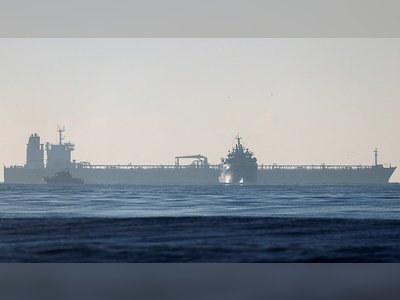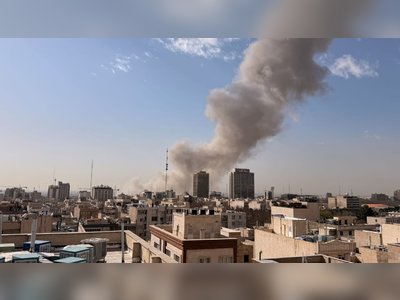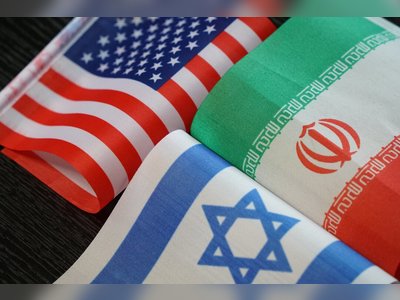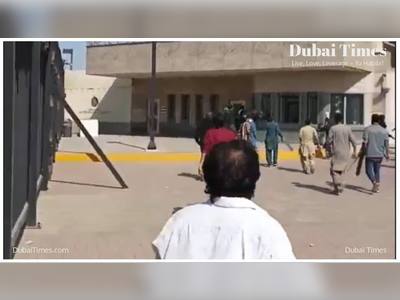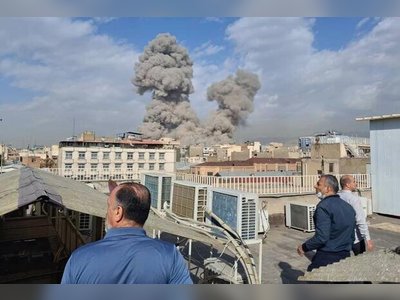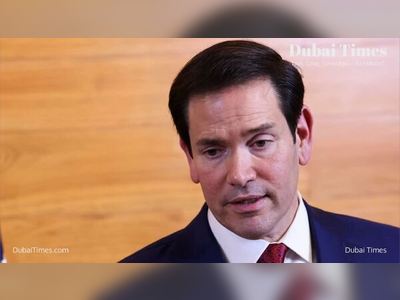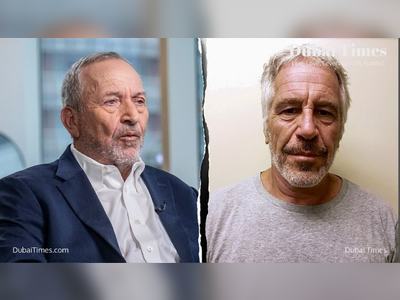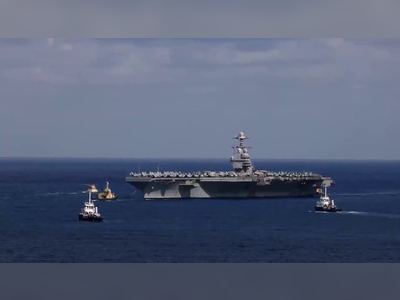Jordan Calls for Israel to Halt Threats to Lebanon's Security
Jordanian Foreign Minister Ayman Safadi emphasizes the need for Israel to cease hostilities against Lebanon during diplomatic visit.
Amid escalating regional tensions, Jordan’s Deputy Prime Minister and Minister of Foreign Affairs, Ayman Safadi, has called for Israel to honor a ceasefire and cease any actions that may threaten Lebanon’s sovereignty and security.
This plea was made during a diplomatic engagement following Safadi’s meeting with Lebanese President Joseph Aoun at the Baabda Palace on Thursday.
According to statements broadcasted by Jordan's state-run channel Al-Mamlaka, Safadi underscored Jordan's commitment to Lebanon's stability and sovereignty, emphasizing the necessity for Israel to halt any aggression.
He assured continued Jordanian support, signaling Jordan’s firm stance alongside Lebanon amid ongoing hostilities.
Safadi highlighted discussions with international partners aimed at equipping the Lebanese military with essential capabilities and resources.
This move aims to empower Lebanon’s armed forces to effectively fulfill their responsibilities against a backdrop of regional instability and frequent border tensions with Israel.
The visit to Beirut marks a significant moment in Jordanian-Lebanese relations, as Safadi brought with him a message from King Abdullah II to President Aoun.
Although the content of the message remains undisclosed, it is seen as a gesture underscoring the cooperation and solidarity between Jordan and Lebanon.
Safadi's arrival at Beirut’s Rafic Hariri International Airport initiated a series of meetings with Lebanese officials focused on security cooperation and regional stability issues.
His visit underscores Jordan’s role as a regional mediator and advocate for peace, seeking diplomatic solutions to Middle Eastern conflicts that threaten regional peace and stability.
This development comes against a backdrop of historical tensions involving Lebanon and Israel, with both nations having faced numerous conflicts over the past decades.
Jordan’s involvement highlights the interconnected nature of Middle Eastern geopolitics and emphasizes the role external parties play in mitigating potential conflicts in this volatile region.
This plea was made during a diplomatic engagement following Safadi’s meeting with Lebanese President Joseph Aoun at the Baabda Palace on Thursday.
According to statements broadcasted by Jordan's state-run channel Al-Mamlaka, Safadi underscored Jordan's commitment to Lebanon's stability and sovereignty, emphasizing the necessity for Israel to halt any aggression.
He assured continued Jordanian support, signaling Jordan’s firm stance alongside Lebanon amid ongoing hostilities.
Safadi highlighted discussions with international partners aimed at equipping the Lebanese military with essential capabilities and resources.
This move aims to empower Lebanon’s armed forces to effectively fulfill their responsibilities against a backdrop of regional instability and frequent border tensions with Israel.
The visit to Beirut marks a significant moment in Jordanian-Lebanese relations, as Safadi brought with him a message from King Abdullah II to President Aoun.
Although the content of the message remains undisclosed, it is seen as a gesture underscoring the cooperation and solidarity between Jordan and Lebanon.
Safadi's arrival at Beirut’s Rafic Hariri International Airport initiated a series of meetings with Lebanese officials focused on security cooperation and regional stability issues.
His visit underscores Jordan’s role as a regional mediator and advocate for peace, seeking diplomatic solutions to Middle Eastern conflicts that threaten regional peace and stability.
This development comes against a backdrop of historical tensions involving Lebanon and Israel, with both nations having faced numerous conflicts over the past decades.
Jordan’s involvement highlights the interconnected nature of Middle Eastern geopolitics and emphasizes the role external parties play in mitigating potential conflicts in this volatile region.
